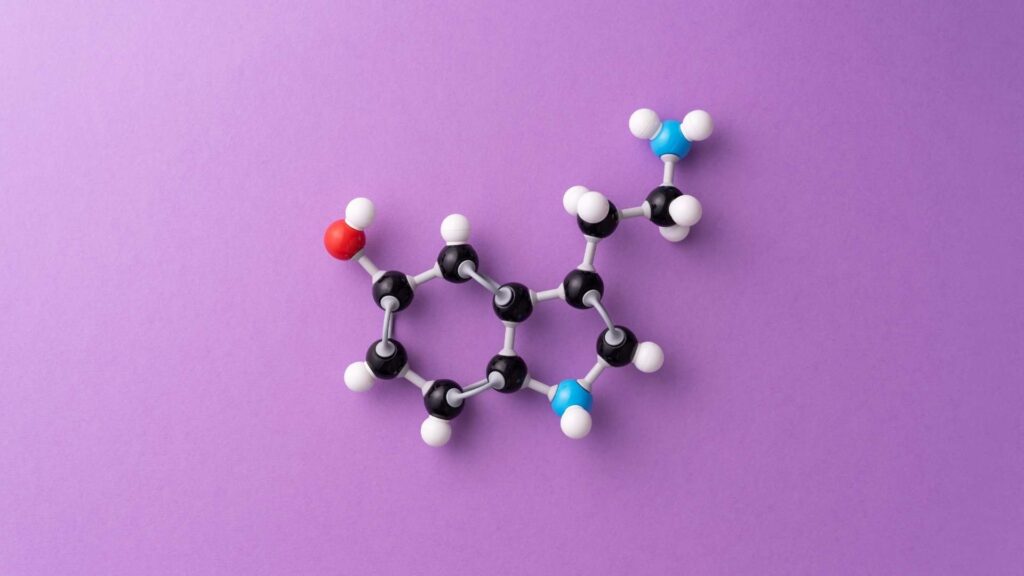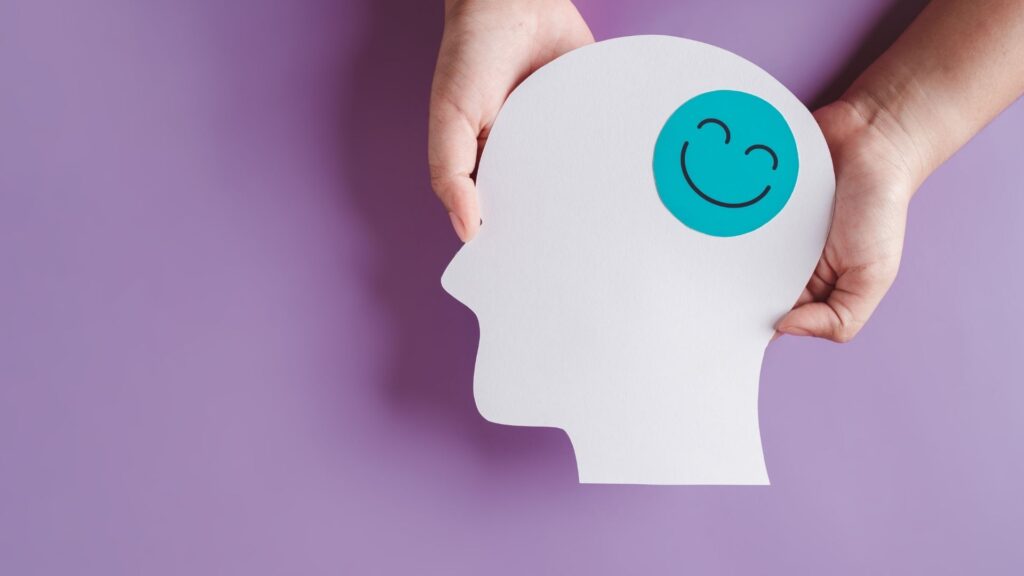With the increase in the popularity of kratom, there have been concerns raised about its effects on brain chemistry as well as the effects it has on the neurotransmitter serotonin, which is commonly referred to as the feel-good hormone.
In this blog, we’ll discuss the impact that kratom has on serotonin levels and the science behind its action on neurotransmitters, the dangers of serotonin syndrome, and how it interacts with dopamine and other brain chemicals.
Understanding Serotonin: The Brain’s Mood Regulator
One of the neurotransmitters, serotonin, is extremely important in mood control, sleep, appetite, thinking, and even feeling pain. Even serotonin is linked with a sense of well-being, emotional stability, and peaceful rest.
A wide range of prescription antidepressants, including SSRIs, act by enhancing the work of serotonin in the brain.
How Kratom Works: Alkaloids and Neurotransmitter Interaction
The most confirmed active components in Kratom include mitragynine and 7-hydroxymitragynine. They are most famous for their interaction with the opioid receptors; nevertheless, studies have demonstrated their interactions with other neurotransmitter systems, e.g, serotonin and dopamine pathways.
What Does Kratom Do to Serotonin Levels?
1. Direct Interaction with Serotonin Receptors
According to scientific research, kratom alkaloids have been shown to dock on the brain serotonin receptors (5-HT2A and 5-HT2c receptors). This activity can affect serotonin activity, thus causing mood changes, stress response, and a general sense of happiness.
- Mitragynine and 7-Hydroxymitragynine have been demonstrated to be modulators of serotonin receptors, potentially accounting for a mood-boosting and anxiolytic (anxiety-reducing) effect of kratom.
- After activating several serotonin receptors, kratom could promote the signaling of serotonin, which might lead to mood boost, calmness, and even euphoria in some users.
2. Indirect Effects via Opioid Receptor Stimulation
Although kratom mostly acts on the mu and delta opioid receptors, this action may also act on the production and release of serotonin secondarily.
Activation of the opioid receptors also affects the reward pathways in the brain, such as the one mediated by serotonin, which may contribute to the higher availability of serotonin, as well as improve the mood.
3. Potential to Block Serotonin Reuptake
It has been predicted by some research that mitragynine can block the reabsorption of both serotonin and noradrenaline, like some antidepressant medications.
The reuptake blocked, more serotonin will be left at the gap between the two cells, and this is likely to make the mood-raising effects further intensified.
Kratom and Mood: The Serotonin Connection

One of the most common effects that kratom users experience is being happier and calmer, as well as being emotionally stable post-ingestion.
This is probably because of its combined effect on both the opioid receptors and the serotonin receptors, which, in combination, control mood, stress, and anxiety.
- Mood Enhancement: The serotonin-modulating effect of kratom can be considered a useful supplement in the mild case of depression or feeling low, but by all means, it should not be used as an alternative to medical care.
- Stress and Anxiety Relief: Kratom can be used to alleviate stress and encourage restfulness since it increases the efficacy of serotonin, especially at medium doses.
Kratom and Serotonin Syndrome: A Rare but Serious Risk
What Is Serotonin Syndrome?
Serotonin poisoning (serotonin syndrome) is a potentially dangerous condition due to a large amount of serotonin activity in the brain.
The use or combination of serotonergic medications, including SSRIs, SNRIs, some pain medications, or recreational drugs, most all the time produces it. Symptoms are agitation, confusion, tachycardia, hypertension, tremor, muscle rigidity, and fever.
Can Kratom Cause Serotonin Syndrome?
Although uncommon, there have been reported incidences of the use of kratom, particularly when concomitant with other serotonin-stimulating drugs (such as antidepressants), which contributed to serotonin syndrome.
Prescription serotonergic drugs, when combined with Kratom, can have their metabolism inhibited, thereby elevating levels in the body system and exposing the person to even greater risks of serotonin overload.
Key Points:
- Kratom does not pose any significant risk of producing serotonin syndrome when taken alone in healthy persons.
- The danger is compounded when kratom is used together with other drugs that increase serotonin, either SSRIs, SNRIs, MAOIs, or the drugs used in migraine.
- The symptoms may take hours before they manifest after a stimulus and may need immediate medical care.
Recognizing and Responding to Serotonin Syndrome
Symptoms to watch for:
- Cognitive: Confusion, agitation, hallucinations
- Autonomic: Rapid heart rate, high blood pressure, sweating, fever
- Neuromuscular: Tremors, muscle rigidity, overactive reflexes
If you suspect serotonin syndrome, stop all serotonergic substances and seek emergency medical care. Treatment may include serotonin-blocking medications, sedation, and supportive care.
Kratom and Dopamine: The Reward Pathway
What Does Kratom Do to Dopamine?
Another important neurotransmitter that is part of pleasure, motivation, and reward is dopamine. The alkaloids of kratom have been identified to respond to a dopamine receptor in the brain, specifically the D,2 receptors. The interaction could lead to the capacity of kratom to boost mood, motivation, and attention.
- Reward and Motivation: Kratom can also trigger dopamine-producing routes, and this factor could be attributed to the imagination of pleasure and propulsion by some users.
- Potential for Dependence: Since the reward system of the brain revolves around the use of dopamine, frequent kratom use may result in psychological dependency on the drug, particularly with high doses or frequency.
The Science: What Do Studies Say?
- Receptor Binding: Research shows that mitragynine and 7-hydroxymitragynine bind to serotonin (5-HT) and dopamine (D2) receptors, influencing both mood and reward pathways.
- Mood and Cognition: Studies suggest that kratom’s modulation of serotonin and dopamine receptors may improve mood, reduce anxiety, and enhance cognitive function.
- Potential Risks: While kratom’s effects on serotonin can be beneficial, combining it with other serotonergic drugs increases the risk of serotonin syndrome.
Practical Guidance: Using Kratom Safely
1. Avoid Mixing with Other Serotonergic Drugs
You should speak to a doctor before using kratom, especially when you are taking prescription antidepressants, migraine drugs, or other medications that have an impact on serotonin. When taken together, these substances may provoke the development of serotonin syndrome.
2. Start Low, Go Slow
Start with the smallest useful amount in order to determine your body’s response. Greater doses present more risks of side effects and adverse effects.
3. Monitor for Unusual Symptoms
In case you feel confused, agitated, have an elevated heart rate or the heart beats fast, become tense and stiff, or have a high temperature upon ingestion of kratom (especially when it is taken in combination with other drugs), you should contact a doctor.
4. Consult a Healthcare Professional
Nevertheless, it is always best to consult your doctor before initiating the use of kratom, especially when you are experiencing mental conditions, taking other medicines, or a risk of drug interaction.
Summary Table: Kratom, Serotonin, and Dopamine
| Neurotransmitter | Kratom’s Action | Effects on Body/Mind | Risks |
| Serotonin | Modulates 5-HT receptors, may increase serotonin signaling | Mood elevation, stress relief, relaxation | Risk of serotonin syndrome when combined with other serotonergic drugs |
| Dopamine | Binds to D2 receptors, influences dopamine release | Motivation, pleasure, focus | Potential for psychological dependence |
Final Thoughts
The influence of kratom on its serotonin levels is rather complicated. Its active compound affects the work of serotonin receptors and can be potentiated, resulting in the opening of feelings, release of stress, and relaxation of so many users.
Nevertheless, when taken together with other serotonergic substances, kratom may increase the chances of serotonin syndrome, which is a very severe and life-threatening condition and needs to be treated immediately. Kratom also affects the dopamine pattern, affecting motivational pursuit and gain.
Like with any supplement or any psychoactive drug, pragmatic use and free interaction with medical experts are the fundamentals of security and success. When it comes time to make decisions and, potentially, try kratom to aid with mood or mental health, make informed choices and watch out for the side effects or possible interactions.
You May Also Like:







